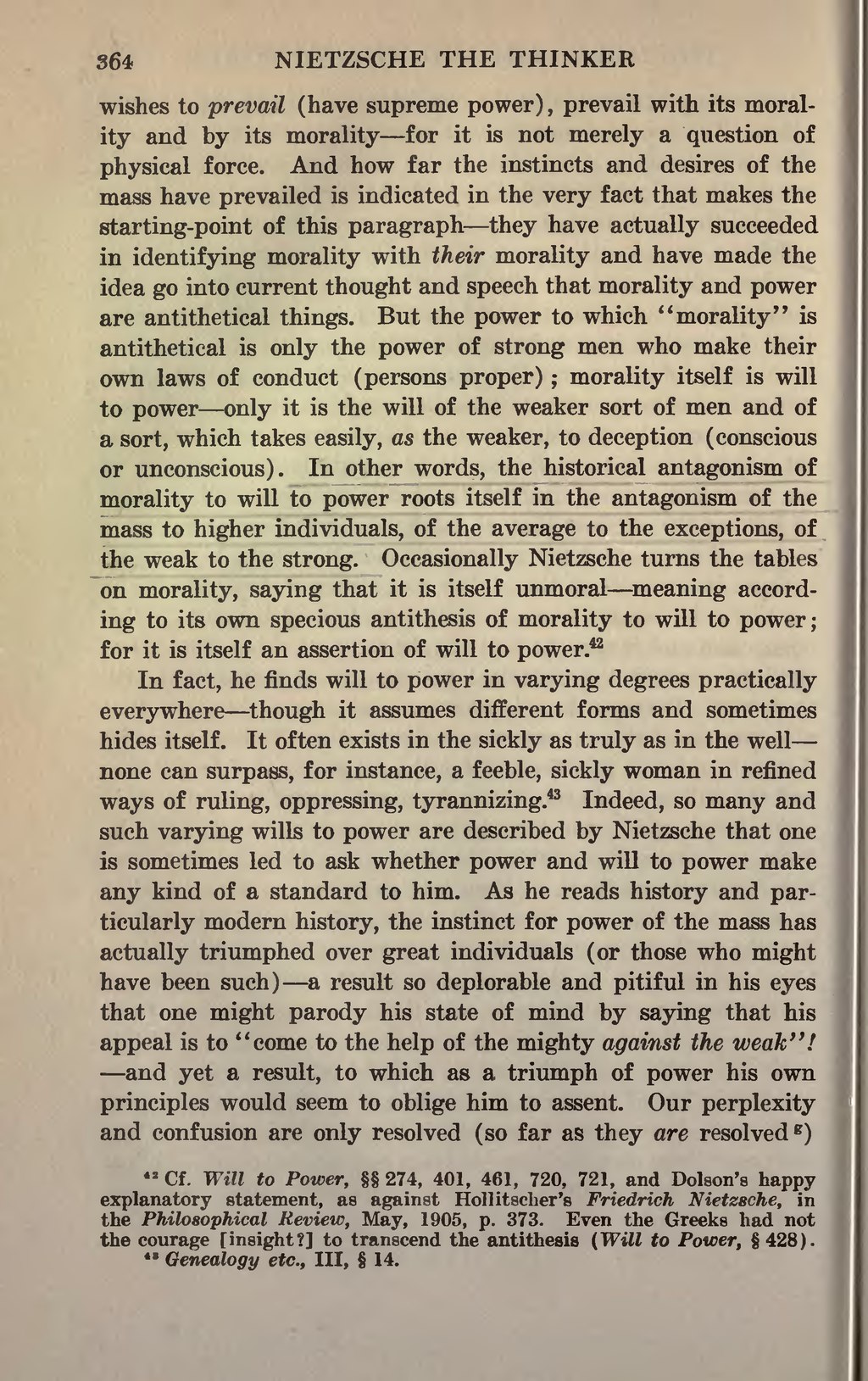wishes to prevail (have supreme power), prevail with its morality and by its morality—for it is not merely a question of physical force. And how far the instincts and desires of the mass have prevailed is indicated in the very fact that makes the starting—point of this paragraph—they have actually succeeded in identifying morality with their morality and have made the idea go into current thought and speech that morality and power are antithetical things. But the power to which "morality" is antithetical is only the power of strong men who make their own laws of conduct (persons proper); morality itself is will to power—only it is the will of the weaker sort of men and of a sort, which takes easily, as the weaker, to deception (conscious or unconscious). In other words, the historical antagonism of morality to will to power roots itself in the antagonism of the mass to higher individuals, of the average to the exceptions, of the weak to the strong. Occasionally Nietzsche turns the tables on morality, saying that it is itself unmoral—meaning according to its own specious antithesis of morality to will to power; for it is itself an assertion of will to power.[1]
In fact, he finds will to power in varying degrees practically everywhere—though it assumes different forms and sometimes hides itself. It often exists in the sickly as truly as in the well—none can surpass, for instance, a feeble, sickly woman in refined ways of ruling, oppressing, tyrannizing.[2] Indeed, so many and such varying wills to power are described by Nietzsche that one is sometimes led to ask whether power and will to power make any kind of a standard to him. As he reads history and particularly modern history, the instinct for power of the mass has actually triumphed over great individuals (or those who might have been such)—a result so deplorable and pitiful in his eyes that one might parody his state of mind by saying that his appeal is to "come to the help of the mighty against the weak"!—and yet a result, to which as a triumph of power his own principles would seem to oblige him to assent. Our perplexity and confusion are only resolved (so far as they are resolved g)
- ↑ Cf. Will to Power, §§ 274, 401, 461, 720, 721, and Dolson's happy explanatory statement, as against Hollitscher's Friedrich Nietzsche, in the Philosophical Review, May, 1905, p. 373. Even the Greeks had not the courage [insight?] to transcend the antithesis (Will to Power, § 428).
- ↑ Genealogy etc., III, § 14.
